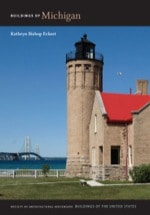
After the Holland Tunnel between New York and New Jersey and the George A. Posey Tube in Oakland, this is the third major subaqueous vehicular tunnel constructed in the United States. Although a sign with large letters at the entrance announces, “5168 FEET TO CANADA,” the tunnel is 5,135 feet long and provides a 22-foot-wide roadway with a 13.5-foot clearance.

